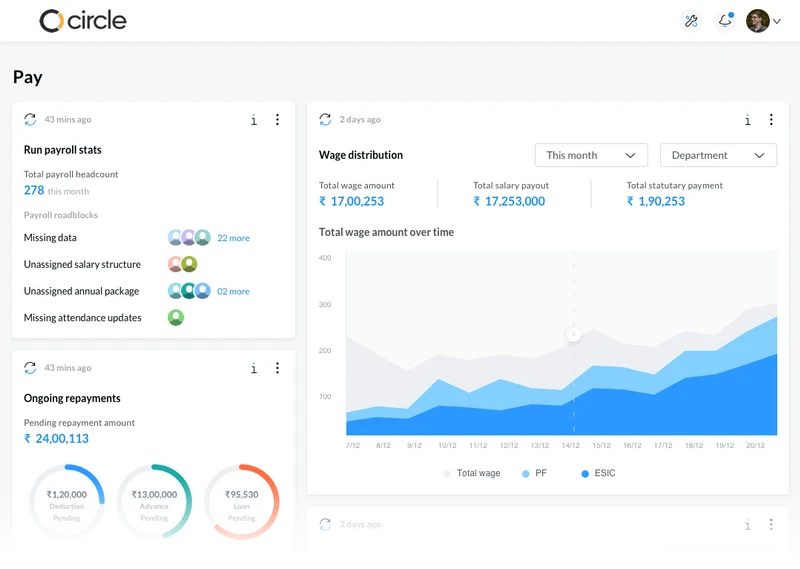From a young age, you were exposed to the concept of fairness as having equal opportunities and perks as everyone else. But as you get older, the term begins to ride into a gray line when you enter the working world. Now you may be a little too humble or shy to demand the compensation you want.
The “real world” may have lowered your expectations regarding your salary. But that shouldn’t be the case. You need to know the amount of money you deserve after working on your deliverables and tasks. Learn more about how to scope the salary you deserve below.
The Importance of Knowing Your Worth
In many aspects of your professional life, knowing and understanding your worth can help you achieve your goals more efficiently. In a sense, you gain better confidence in yourself, allowing you to seize opportunities as they come along. But be aware that you should never confuse confidence with arrogance.
When you know your worth in the market, it entails that you trust yourself and your skills. It can majorly prevent you from settling for anything less than what you deserve.
What Can I Do to Assess Myself Properly?
Different workers can have varying degrees of expertise and experience in their fields. Many industries may not always pay the same range for your job position. Not being informed of the average salary range for your role can put you at risk of being underpaid. To avoid this, here are some self-assessment tips you can use to gauge your value as an employee.
- Talk to workers in similar fields and positions
Discussing with people who work in similar jobs from varying companies can give you a good sense of what fair pay would look like for your situation. While it may not always be a comfortable topic to talk about, doing so can help you better understand pay differences, especially for those in minority groups.
- Mark your achievements
Having a few accomplishments under your name always holds the potential to lead to a salary increase. Employers often look at this as a gauge to see if you’re an effective employee who can offer more value to their company.
- Consider the time spent working for your employer
While it’s common for certain companies to operate within a specific pay scale, many also tend to have lenient policies regarding salary increases.
If it has been more than a year since you joined a company, it may be time to open a discussion with your manager. Alternatively, you can refer to your employment contract to understand how your employer manages long-term workers.
- Be realistic with your needs
While everyone wants a high-paying job, you must remember to be realistic with your salary expectations.
Mandatory deductions like tax are a given, but budget restraints and other fiscal challenges may prevent a company from giving you what you want. If this happens, you can also consider negotiating other benefits or positions that can provide you with better opportunities later in your career.
- Open a discussion with your manager
Invite your manager to discuss your payment once you have collected a sustainable amount of research and information, determining an acceptable salary range. Doing so can give your arguments more credibility and allow you to properly present your value to the company.
Most importantly, framing these discussions as a negotiation rather than a debate can work to get you better results.
4 Key Tips and Practices You Should Use to Get Fair Workers’ Pay
Now that you have a better idea and understanding of your self-worth in the industry, you can ask for better salary ranges. But this process doesn’t necessarily mean it’ll be easy since it’s still a negotiation between you and your employer. Here are a few tips and tricks you can use that can get you to raise the minimum wage.
- Study the market value
Many companies typically base their wages on the national average or a specific range where the brand is established. This data can also show you the average hourly rate people earn in a particular region, which can adjust based on your skill level, expertise, experience, and many other factors.
- Encourage transparent discussions
Being honest is the only way to achieve clear communication between you and your employer. When negotiating your salary, be open with your expectations and explain why you feel what you’re asking for is fair. But it would be best if you remembered to be realistic with your negotiations to ensure success.
- Know what factors affect your salary
Factors like geographic pay policies can significantly affect how your employer determines your salary. It can be based on the industry standard in your location and the cost of living adjusted in mind. Of course, other elements like the job position, company size, and your experience are also taken into consideration.
- Use a salary calculator
Salary calculators are widely available to help you learn if your pay is reasonable and fair for your position. It can also give you a better idea of the maximum and minimum pay ranges you can ask for without the risk of an employer turning away from you.
While these tools are commonly used before accepting a job, you can still utilize them to negotiate your pay after getting a job offer.
Enjoy the Role and the Pay with Fair Strategies
The definition of “fair” can vary from company to company. While many people believe that you can earn more by having the right skills and amount of experience in a field, this doesn’t always apply. Knowing your worth as a remote worker is the best way to ensure you get fair pay.
Studying the market and researching the common demand for your position in your area can give you a good idea of your salary range. But before you start negotiating, you must be realistic and fair with your expectations. You’ll have the chance to become more successful in getting the pay range you want while building a better relationship between you and your employer.








